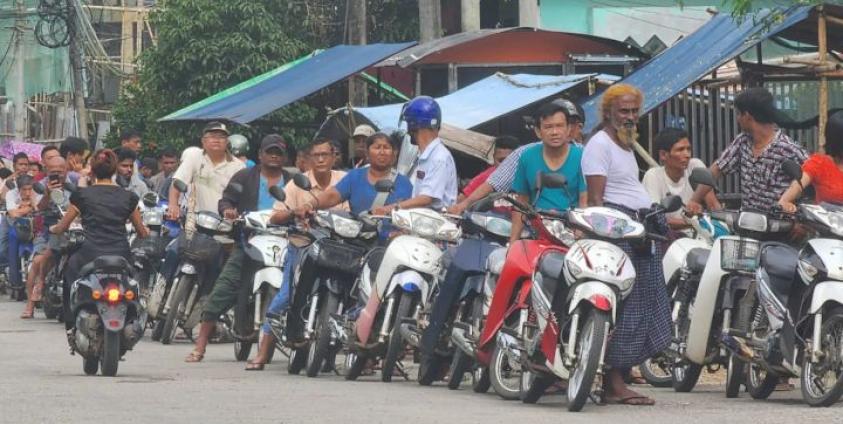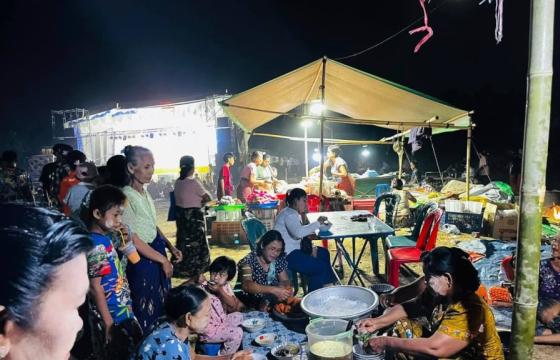Following repeated fuel shortages across the country, the junta plans to implement a smart card system that will restrict fuel sales to customers.
The junta has begun talks to with fuel wholesalers about the introduction of a smart card system that will restrict vehicles to one purchase of fuel a day and will also restrict the total amount of fuel that can be purchased, according to fuel wholesalers who spoke to Than Lwin Times.
With domestic demand for US dollars (USD) soaring the junta has been unable to supply fuel importers with sufficient USD to buy all the fuel they want. This has led to frequent fuel shortages across the country, which is why the junta is looking at smart cards to restrict fuel sales.
A fuel wholesaler speculated that the restrictions of the smart card system may be modeled on an older, no longer operative system that rationed fuel purchases using quotas based on vehicle types and required customers to have a fuel purchase permit book (a.k.a. fuel book).
He said: "In the past, Myanmar struggled for years with a system that required a fuel book. If the smart cards work similarly, the junta will collect detailed information about vehicles applying for these cards, potentially leading to specific quotas for motorcycles and other vehicles. Fuel sales could be restricted, with car owners only able to purchase fuel at designated stations.”
He added that such restrictions would inevitably lead to a flourishing black market in fuel.
Discussions are ongoing about how much fuel will be allocated to different kinds of vehicle under the smart card system and separate talks are ongoing about how fuel will be supplied to people who are running generators, according to fuel wholesalers.
A motorist criticised the plan to limit fuel sales with smart cards, arguing that it’s not a viable solution given that, currently, people are already struggling to purchase the fuel they need and facing long wait times.
A Mandalay City an autorickshaw taxi driver said: “In the past few days, fuel has been back at the stations. Typically, we face fuel shortages about three days a week, so nearly every day, cars and motorcycles are lined up. If smart cards limit daily fuel purchases, it will create significant inconvenience, particularly for autorickshaw taxi drivers like us who need to buy fuel daily.”
During severe fuel shortages, it becomes extremely difficult to buy both petrol and diesel. As a result, some bus services have been halted, and others are unable to operate at full capacity.
Fuel wholesalers explained that though tankers carrying fuel frequently arrive at Thilawa Port in Yangon Region, there are often long delays because importers are having difficulties sourcing USD and the tankers will not unload until they have been paid in full in USD. These delays often lead to domestic fuel shortages.
Fuel prices are now nearly five times higher than they were before the coup. On top of price instability and shortages, customers also have to queue a long time for fuel.







